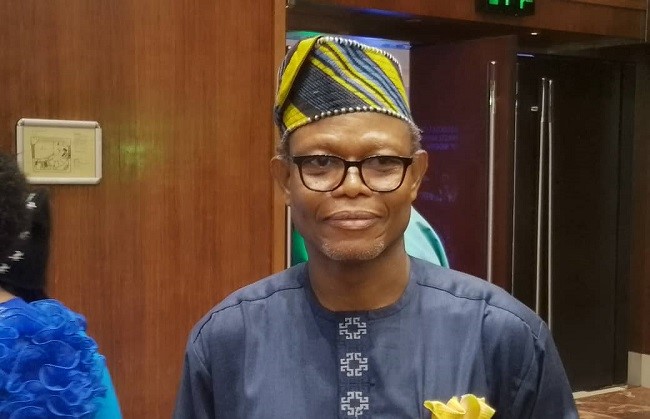The Association of Waste Managers of Nigeria (AWAMN) has praised the Lagos State Government for retaining Private Sector Participant (PSP) operators in door-to-door waste collection.

AWAMN’s National President, Mr. Olugbenga Adebola, made this known on Saturday, May 31, 2025, in an interview in Lagos.
This follows concerns raised by some PSPs and stakeholders regarding their role in light of a new concession agreement with Zoomlion Nigeria Ltd.
On May 27, the Lagos State Government signed a Waste Management and Processing Concession Agreement with Zoomlion, a subsidiary of Ghana’s Jospong Group.
However, the Commissioner for the Environment, Mr. Tokunbo Wahab, clarified on X (formerly Twitter) that PSPs would continue with door-to-door waste collection services.
He assured that PSPs remain the backbone of residential waste collection and are not being sidelined by the new arrangement.
Adebola welcomed the agreement and praised the commissioner’s understanding and dedication to improving the environmental ecosystem.
He also commended LAWMA’s Managing Director, Mr. Muyiwa Gbadegesin, for his commitment to bettering the waste management system in Lagos.
Adebola admitted that the association was initially concerned, as they were not consulted before the signing of the Zoomlion agreement.
He explained that the concession is focused on the disposal end of the waste chain, aiming to convert waste into valuable materials.
He added that converting Olusosun and Solous into transfer loading stations would be a positive development.
Adebola said this is a long-standing demand of the association to improve solid waste management in the state.
He stressed that, without accessible dumpsites, effective door-to-door waste collection is not possible.
According to him, once waste is collected, it must be swiftly taken to treatment or disposal sites to maintain efficient operations.
Delays in access reduce turnaround time, making it hard for PSPs to complete multiple collection trips daily.
Adebola said the development will enhance the efficiency of PSP operators working across residential and commercial sectors.
He stated that AWAMN supports the process and will continue operations while waiting for the 18-month transition period.
PSPs, he said, require unfettered dumpsite access to make two or three trips daily, which is currently difficult.
He blamed this access issue for many challenges in Lagos waste management, especially turnaround delays.
According to Adebola, Olusosun will be transformed from an open dumpsite into a material recovery facility.
He noted that waste would no longer be buried but processed into useful products within the facility.
He explained that the facility would sort waste into recyclables, combustibles, and organic materials for treatment.
He said PSPs will no longer need to travel to Badagry or Ikorodu to dispose of waste.
Instead, they will deliver collected waste to Olusosun or similar designated locations for processing.
Adebola added that Solous III would also host a material recovery facility, replacing traditional landfilling methods.
As a veteran in recycling, he said some processed products would be offtaken by local operators like himself.
He echoed the commissioner’s vision of transitioning from a linear to a circular economy model.
A linear economy involves using and disposing, while a circular model includes recycling, reusing and repurposing.
He stated that waste must now be seen from cradle-to-cradle, not cradle-to-grave.
AWAMN welcomes Zoomlion and the shift to a circular economy where waste becomes a valuable resource.
He affirmed that Nigerian recyclers are not pushovers and already understand many of Zoomlion’s proposed practices.
Adebola, a former operator and consultant in Ghana, said there are opportunities for mutual learning.
He explained that many PSPs already have exposure to recycling practices, both locally and internationally.
The commissioner has made clear that Zoomlion’s role is waste treatment, while PSPs handle collection.
This clarification, Adebola said, helps calm fears among PSP operators about being excluded.
According to Adebola, Lagos produces around 13,000 metric tonnes of waste daily.
He said Zoomlion would handle only 5,000 tonnes, leaving 8,000 tonnes for other stakeholders.
He confirmed many local operators are interested in managing the remaining volume of untreated waste.
The Commissioner earlier stated that Olusosun would be decommissioned within 18 months as part of the new plan.
This marks the end of the linear system and the beginning of a modern, circular waste management strategy.
He added that Lagos would now convert waste into power and other productive uses.
He reiterated that PSPs remain central to the daily collection process under the Zoomlion partnership.
By Fabian Ekeruche
